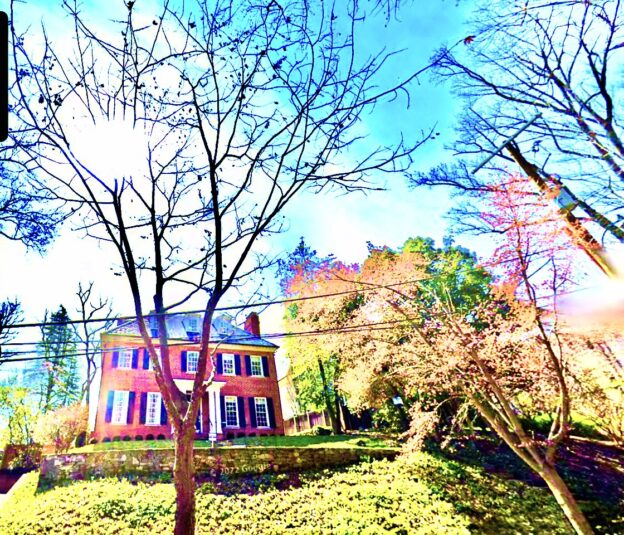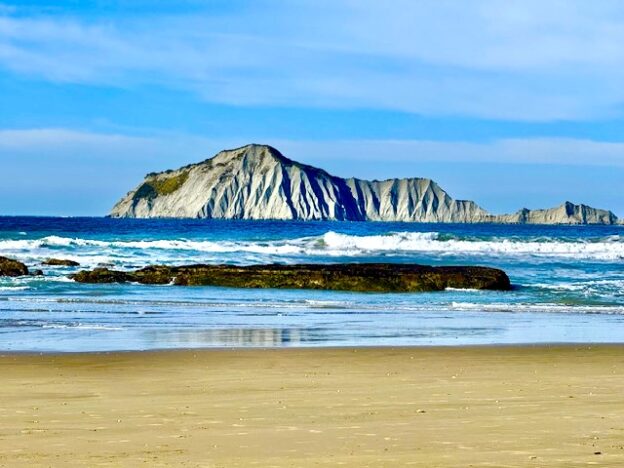Over the past 77 years I have had casual though memorable encounters with what I might usefully describe as the “veneer” of the United States of America. It began around 1958 when living with my family in Washington DC. We lived mere blocks from Vice President Richard Nixon; and, coincidentally his daughter Julie and I were in Mrs. McGee’s class at Horace Mann School. Our immediate next door neighbours (we lived at 4412 Edmonds St NW) were Dr. and Mrs. Cox whose son-in-law was a lawyer for Mr. Nixon and who was subsequently implicated in the Watergate scandal. Everybody whom we knew in the area (including our family) had live-in staff, whether cook, driver or maid, mostly people of black origin but one (our neighbours on the other side) Asian.
In 1963 when I began attending St. Andrew’s College I learned of the assassination of John F. Kennedy. The American boys at our school stood out on that day by virtue of our collective sorrow for them.
In my subsequent educational studies I learned of the extraordinary conflict arising from the perceived spread of communism in America. It was never a project which I considered to be of any value other than harmful hyperbole.
McCarthyism refers to a period in American history (roughly 1950-1956) characterized by intense anti-communist suspicion and a campaign to root out alleged communist influence in the United States. It is named after Senator Joseph McCarthy who led investigations into supposed communist infiltration of the government and other institutions.
From prep school through undergraduate studies at Glendon Hall and graduate studies at Dalhousie University, I had little if anything to do with the United States of America. In 1976 or thereabouts I made the first of what was to become annual jaunts to Cape Cod in September each year surrounding Labour Day, first for weekends, then a week then longer periods into the approaching autumn. I distinctly recall on one occasion hearing from the proprietor of the guest house where I often stayed that he had an especial dislike or mistrust of Republicans. At that time, I was so ignorant of American politics that I had trouble identifying Republicans or Democrats as anything other than Conservative or Liberal (as we have in Canada).
After I retired in 2014 we spent the next decade wintering on Hilton Head Island, Longboat Key and Key Largo for 6 months each year. Throughout that period we associated exclusively with Americans who were of similar characteristics and appearance to our own. We were often in “gated” communities.
Then President Donald J. Trump (the current Republican candidate) began his disturbing tirades about overtaking Canada as another state. The effect upon Canadianism has been astronomic. Trump’s fitful conduct now describes what is universally felt to be the character of the United States of America. Considering Trump’s obvious struggle with language, literature and education generally – and in view of his repeated public performance of social inadequacy – he has come to represent the distasteful common denominator of the United States of America.
Here I am compelled to interject (for the sake of preserving balance) that the people whom we met in the United States of America during the past decade – the people with whom we daily associated and interacted – were (and are) exceptionally kind and magnanimous. We continue to associate with many of those same people through email, telephone, etc. We fully suspect that some of them are Republicans. In my mind there is little significance attached to either Republican or Democrat (any more than there is in Canada to Conservative or Liberal) because among those whom I know, it is purely a matter of choice. For the most part the people whom I know – though they may have different political choices – are good people who cultivate sound standards of human conduct.
What however is seemingly evolving in America is a possible dramatic shift to a singular culture, one which avoids all contamination of difference of any class. Of course the Americans are entitled to do so. The project does nonetheless disappoint me as a collective goal (which I am hoping it is not). I am perturbed by the affiliation of liberalism with communism. In fact the term communism is itself so capable of liberal interpretation that I see it as nothing but a design to inflict adversity for any cause. The mere fact that the strength of American psyche is focussed so avidly upon the sole desire to put people and ideas underfoot, to crush adversity, to alienate some people, to dominate others, leads me to conclude that America is on a downhill path of negativity.
Now approaching the end of my life, I am daily uplifted by all that there is about which to be excited and thankful. As an old country lawyer with a privileged background I naturally have my own persuasions. At the same time I derive great advantage from the attempt to understand people who do not necessarily “fit” into my particular mould. The value of my life is not to be assessed by a catalogue of my possessions or positions; rather, by my capacity to relate to others and possibly to contribute. And while I may not do much to raise the bar, nor am I routinely accused of lowering it. Meanwhile Canadians – and reportedly many others in the Western world – have decided to stay clear of the United States of America. Until we “outsiders” are convinced of the transfusion of the more healthful American blood, my prediction is that the elimination will survive. Entire social and economic networks are undergoing transition to skirt the global infection. The critical nature of choice is now paramount.
Leonard Anthony Leo (born November 1965) is an American lawyer, businessman, and conservative legal activist. He was the longtime vice president of the Federalist Society and is currently, along with Steven Calabresi, the co-chairman of the organization’s board of directors.
Vogel wrote that Leo had built “one of the best-funded and most sophisticated operations in American politics, giving him extraordinary influence as he pushes a broad array of hot-button conservative causes and seeks to counter what he sees as an increasing leftward tilt in society.” In 2023, ProPublica described Leo’s activism, namely through the Teneo Network, as focusing on “‘woke-ism’ in corporations and education, ‘one-sided journalism’ and ‘entertainment that’s really corrupting our youth.”









